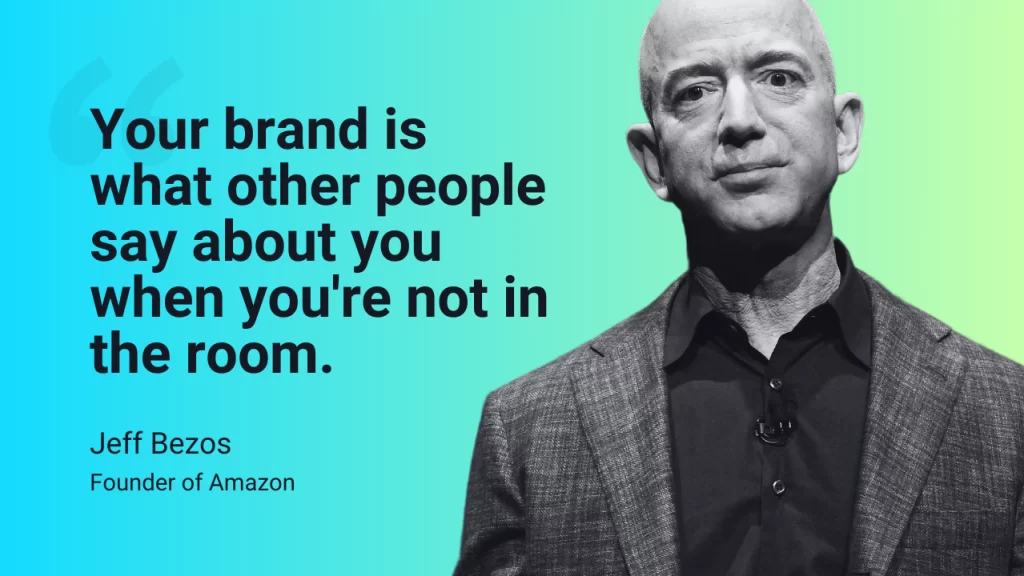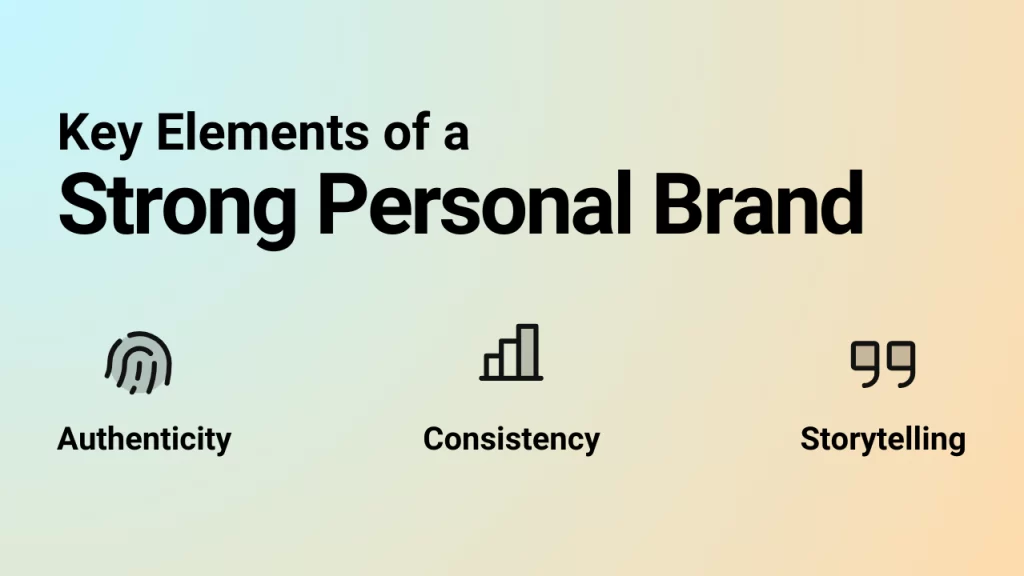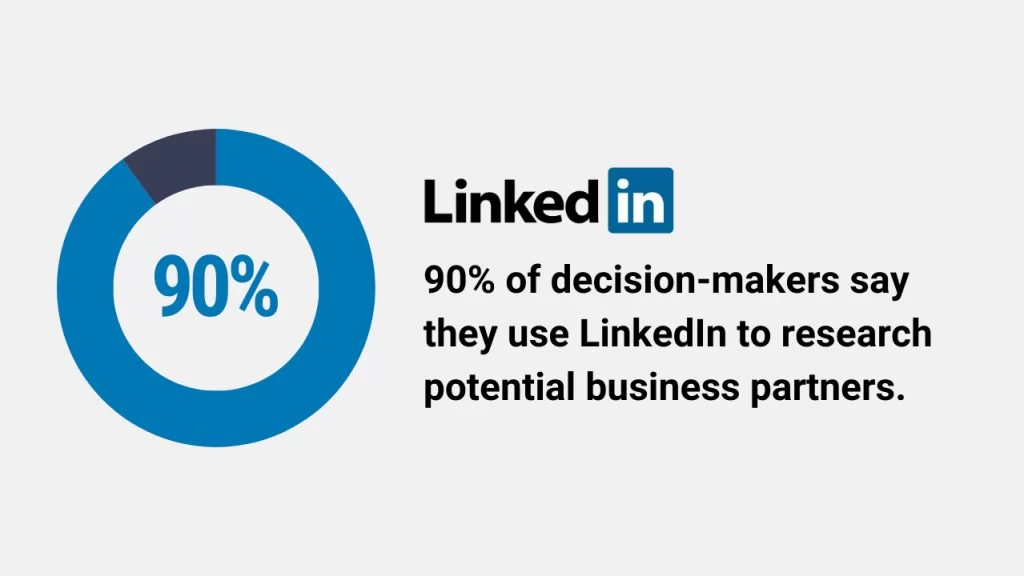Ever wondered what people say about you when you’re grabbing a coffee or out for lunch? In today’s world, it’s not just about what you do; it’s about who you are – your personal brand. Think of it as your professional avatar in the digital world, or the vibe you give off in a room full of networkers.

What is Personal Branding?
Let’s throw in some real talk with numbers. According to Forbes, a whopping 84% of consumers believe that a company’s reputation is as good as the personal brand of its employees. That means if you’re a walking, talking embodiment of awesomeness, it reflects well not just on you, but also on the company you work for.
And here’s another kicker: LinkedIn says 70% of hiring managers find a strong personal brand more compelling than just a shiny resume. Yes, your experience and skills are important, but how you package and present them can be a game-changer. It’s like having a secret sauce that makes employers and clients want to pick you from the shelf first.
Think of personal branding as your career’s wingman. It not only helps you stand out in a crowd but also opens doors to new opportunities and partnerships. In a world where everyone is trying to be a LinkedIn influencer, your personal brand can be the reason someone chooses to do business with you over someone else.
It’s about building trust, showing your unique value, and letting people know, “Hey, working with me? It’s a good decision.”
Building a Personal Brand that Resonates
Imagine your personal brand as a blockbuster movie about you. What story does it tell? Who are the main characters? And most importantly, what’s the unforgettable plot twist? Crafting a personal brand that resonates isn’t just about having a sleek LinkedIn profile; it’s about creating a narrative that captivates your audience – potential employers, colleagues, and clients.
Key Elements of a Strong Personal Brand

- Authenticity: Be the real you. Your brand should be a reflection of who you are, not a persona you put on for the ‘gram. People can spot a fake from a mile away, and nothing beats the appeal of genuine passion and honesty.
- Consistency: Whether it’s your communication style, your professional look, or the content you share, consistency is key. It’s like being known for a signature dish; people know what to expect and they keep coming back for more.
- Storytelling: Everyone loves a good story. Share yours. How did you get to where you are? What hurdles did you overcome? This isn’t just about your successes; it’s also about the journey that got you there.
Tips on Authenticity, Consistency, and Storytelling
- Be Yourself: Share your true interests, beliefs, and values. Let people know what you stand for.
- Create a Visual Identity: Use a consistent profile picture and style across platforms. Let your visual identity be your virtual handshake.
- Narrate Your Journey: Use your experiences, failures, and successes to craft a compelling story. Remember, vulnerability can be a powerful tool in connecting with others.
Networking and Collaboration
You know that saying, “It’s not what you know, but who you know”? There’s some truth to it. Building a robust network is like planting seeds that can grow into career opportunities, partnerships, and collaborations.
Networking isn’t just about collecting business cards or LinkedIn connections. It’s about building relationships. It’s the coffee chats, the mutual introductions, and the shared interests that turn contacts into allies.
Sprout Social 2023 highlights that 58% of people are more likely to follow a brand seen collaborating with other admired brands. Joining online communities related to your industry can also increase your brand visibility by 50% (Social Media Examiner 2023).
Leveraging Digital Platforms
Platforms like LinkedIn, Twitter, personal blogs, and even Instagram are vital tools for personal branding. For instance, blog posts with personal anecdotes receive 86% more engagement (HubSpot 2023), and professionals who share their work on social media are perceived to have a stronger personal brand (LinkedIn 2023).
While 74% of employees believe their personal brand helps them stand out in the job market (LinkedIn 2023), it’s important to strike a balance. Over-sharing personal life can lead to 52% of consumers unfollowing a brand (Sprout Social 2023).

Finding the right balance between professional expertise and personal relatability can increase brand trust by 30% (Social Media Today 2023). Remember, 80% of consumers expect brands to be transparent about how they use their data (Sprout Social 2023).
Monitoring and Managing Your Reputation
In the digital age, where opinions are formed and shared at lightning speed, managing your reputation has become more crucial than ever. It’s not just about building a personal brand; it’s about nurturing and protecting it. Think of it as tending a garden; you need to constantly weed out the negatives and water the positives.
Tools and Practices for Reputation Management
- Regular Monitoring: Keep an eye on what’s being said about you online. Tools like Google Alerts, Social Mention, and Brand24 can help you track mentions of your name or brand across the web.
- Engage Proactively: Don’t just monitor; engage. Respond to comments, share content that reflects your brand values, and participate in relevant online conversations. This helps in shaping the narrative around your brand.
- Update Your Content: Keep your digital presence fresh and relevant. Regularly update your social media profiles, blog, and professional websites to reflect your current professional status and achievements.
Dealing with Negative Feedback
Negative feedback is inevitable, but it’s not the end of the world. In fact, it can be an opportunity to showcase your professionalism and commitment to continuous improvement.
- Respond, Don’t React: Acknowledge the feedback calmly and professionally. Avoid defensive or aggressive responses, as they can escalate the situation.
- Take the Conversation Offline: For complex issues, move the discussion to a private channel like email or a phone call.
- Learn and Adapt: Use constructive criticism to improve. It shows that you value feedback and are committed to growth.
Maintaining a Positive Online Presence
A positive online presence is key to a strong personal brand. Here’s how to maintain it:
- Be Consistent: Ensure your messaging and content are consistent with your brand values and professional image.
- Share Positive Stories and Achievements: Regularly post about your successes, community involvement, or professional insights to create a positive narrative.
- Network Positively: Connect with other professionals and brands that align with your values and contribute positively to your online presence.
Conclusion
Remember, in the digital world, your reputation is your currency. By actively managing your online presence, engaging with your audience, and dealing with feedback constructively, you can safeguard and enhance your personal brand. It’s about being mindful of the digital footprints you leave and ensuring they lead to a path of professional success and respect. Your reputation is a mirror of your professional ethos; make sure it reflects the best of you.



